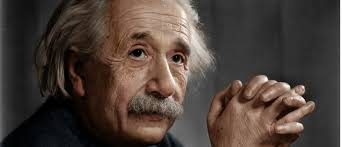
Albert Einstein: The Virtuoso Who Reclassified Science and Propelled Humankind
Albert Einstein, brought into the world on March 14, 1879, in Ulm, Germany, stays one of the best personalities to have at any point lived. Most popular for changing the logical world with his Theory of Relativity, Einstein’s commitments to physical science not just molded the cutting edge comprehension of the universe yet in addition rose above science, procuring him an immortal spot as a thinker, compassionate, and motivation for ages.
The tradition of Albert Einstein goes a long ways past his exceptional scholarly accomplishments — he turned into an image of inventiveness, interest, and versatility. Whether it’s Albert Einstein IQ, his adages, or foundations like the Albert Einstein School of Medicine, his impact keeps on contacting different circles of human advancement.
Early Life and Education
Albert Einstein was naturally introduced to an unobtrusive Jewish family in the Realm of Württemberg, Germany. As a kid, he hushed up, saved, and, surprisingly, considered delayed to talk. In spite of the prevalent misconception that Einstein battled scholastically, his initial interest with science and math became clear when he got a compass from his dad at age five. Hypnotized by the imperceptible power that made some difference, youthful Albert’s interest for nature’s regulations started.
At the time of 16, Einstein composed his most memorable logical paper, investigating the speed of light — a sprinkle of the virtuoso that was to come. Subsequent to confronting difficulties in the unbending German schooling system, he at last moved on from the Swiss Government Polytechnic School in Zurich in 1900.
Notwithstanding, Einstein’s initial a long time after college were not even close to breathtaking. Battling to look for employment in scholarly world, he accepted a position as a patent clerk in the Swiss Patent Office in Bern. It was in this unassuming setting, a long way from research labs, that he created a portion of his most notable speculations.
The Wonder Year: 1905
The year 1905 is frequently alluded to as Einstein’s Annus Mirabilis (wonder year), during which he distributed four progressive papers that changed material science until the end of time:
- The Photoelectric Effect – Einstein demonstrated that light acts as the two waves and particles, procuring him the Nobel Prize in Physics in 1921. This idea established the groundwork for quantum theory.
- Brownian Motion – He gave indisputable proof of the presence of molecules, affirming their movement through numerical estimations.
- Special Hypothesis of Relativity – Maybe his most well known commitment, this hypothesis presented the condition E=mc², showing that energy and mass are compatible.
- Mass-Energy Equivalence – This noteworthy condition stays perhaps of the most perceived recipe in science, demonstrating energy and matter are two types of a similar substance.
In a world controlled by old style Newtonian physical science, these disclosures shook mainstream researchers, impelling Albert Einstein to worldwide distinction.
Albert Einstein intelligence level and Scholarly Genius
Perhaps of the most widely recognized question individuals get some information about Einstein is connected with his insight. However Einstein himself never formally took a IQ test, specialists gauge that Albert Einstein IQ would fall somewhere in the range of 160 and 180 — a score putting him among history’s most splendid personalities.
However, Einstein generally demanded that inventiveness, not knowledge, is the way to advancement. He broadly commented:
“Creative mind is a higher priority than information. For information is restricted, while creative mind embraces the whole world.”
Einstein’s virtuoso stemmed from his crude insight as well as from his special approach to addressing regular convictions, combined with his tenacious quest for figuring out nature’s secrets.

The Overall Hypothesis of Relativity
In 1915, Albert Einstein distributed his General Hypothesis of Relativity, a stupendous work that portrayed gravity as the bend of room time brought about by mass. This hypothesis supplanted Newton’s old style hypothesis of attractive energy and had significant ramifications for figuring out the universe, including dark openings, the bowing of light, and the development of room.
Einstein’s relativity hypothesis was first affirmed during a sun based overshadow in 1919, when light from far off stars was noticed bowing around the sun. This occasion shot Einstein to worldwide fame. The world wondered at his revelations as well as at the lowliness with which he conveyed his virtuoso.
Einstein’s Impact in Medicine
Past material science, Albert Einstein’s commitments in a roundabout way molded the clinical field. Organizations like the Albert Einstein School of Medicine, laid out in 1955 in New York, convey his name as a demonstration of his commitment to information, research, and further developing humankind. The clinical school mirrors the virtuoso and compassionate qualities Einstein exemplified, cultivating development and lifesaving research.
The association between Albert Einstein Clinical School and his heritage lies in science as well as in his enthusiastic faith in utilizing information to serve humanity. Einstein once said:
“Just a day to day existence lived for others is a day to day existence worthwhile.”
This ethos reflects crafted by establishments like the Albert Einstein School of Medication in propelling clinical training and spearheading research.
Einstein’s Inheritance Past Science
Albert Einstein was a physicist as well as a savant and radical. Escaping Nazi oppression, Einstein emigrated to the United States in 1933, where he took a situation at the Institute for Cutting edge Study in Princeton, New Jersey. Profoundly pained by the ascent of extremism, Einstein supported for world harmony and criticized the utilization of his work for damaging purposes.
While Einstein’s hypotheses helped introduce the atomic age, he stayed a vocal rival of atomic weapons, especially subsequent to seeing the pulverization of Hiroshima and Nagasaki.
His philanthropic convictions stretched out to social liberties also. Einstein openly stood up against racial isolation in the US, attesting:
“Prejudice is America’s most prominent disease.”
Albert Einstein Quotes
Einstein’s words convey ageless insight, mixing science, theory, and mankind. A portion of his most impressive statements include:
- “Life resembles riding a bike. To keep your equilibrium, you should keep moving.”
- “Make an effort not to turn into a man of progress, yet rather attempt to turn into a man of value.”
- “Any individual who has never committed an error attempted had a go at nothing new.”
These statements mirror his confidence in strength, modesty, and long lasting learning.
Later Years and Death
Albert Einstein stayed dynamic in logical and compassionate pursuits until his last days. On April 18, 1955, Einstein died at 76 years old because of a stomach aortic aneurysm. His cerebrum was protected for study, as researchers would have liked to reveal the privileged insights of his mind.
Consistent with his desires, his body was incinerated, and his remains dissipated, abandoning not an actual landmark but rather a tradition of thoughts that changed mankind.
The Immortal Tradition of Albert Einstein
Albert Einstein’s life was a demonstration of the force of interest, inventiveness, and persistence. From rethinking physical science with hypotheses that actually guide researchers today to rousing ages with his lowliness and astuteness, Einstein’s effect is boundless. Foundations like the Albert Einstein School of Medicine convey his inheritance, guaranteeing that his name stays inseparable from greatness and progress.
In excess of a logical virtuoso, Einstein was a voice for mankind. His bits of knowledge into life, schooling, and harmony help us to remember his significant conviction:
“The significant thing isn’t to quit addressing. Interest has its own justification for existing.”
In the huge universe he assisted us with understanding, Albert Einstein sparkles as a directing star — a brain who extended our points of view and a heart that trained us to esteem information, creative mind, and humankind.




